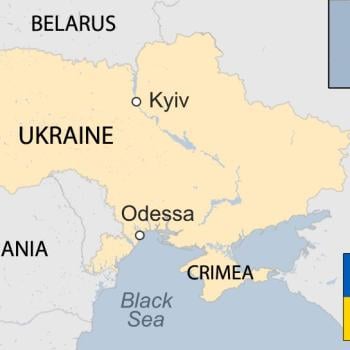The thesis of my book, Moses Predicted COVID-19, is that the dietary laws that God gave the ancient Israelites through Moses in Torah may indicate that such coronaviruses as COVID-19 are caused by zoonosis from “unclean” animals, such as pigs. Most people know that religious Jews don’t eat pork. Why? It is forbidden in Moses’ dietary laws as set forth in the Jewish scriptures in Leviticus 11 and Deuteronomy 14. These laws approve of eating the meat of animals that both divide the hoof and chew the cud, which includes cattle, sheep, goat, and deer, deeming them “clean.” But animals that do not do both are deemed “unclean and thus forbidden to be eaten.
So, I agree with most religious Jews that these Mosaic dietary laws are not just symbolic in their significance, but intended as hygienic in value as well. Yet most Christians are taught that Jesus overturned these dietary laws in his brief statement in Mark 7.14b. It is usually translated, “Thus, he declared all foods clean.” But I believe that is a wrong translation and therefore that Jesus said no such thing.
To put it another way, Jesus was a GOOD JEW who therefore would never teach anything contrary to what Moses taught. Jesus made this perfectly clear about himself at the very beginning of his public ministry as an itinerant preacher when he said in his famous Sermon on the Mount, “Do not think that I have come to abolish the law or the prophets; I have come not to abolish but to fulfill” (Matthew 5.17 NRSV).
When COVID-19 struck, employees at meat packing plants in the U.S. were unusually susceptible to infection from this devastating pandemic disease–COVID-19. Julie Anna Potts, president and CEO of The North American Meat Institute trade group says, “Frontline meat and poultry workers were among the first impacted by the pandemic.” In fact, there were certain such plants that became “hotspots” for COVID. One was a Smithfield pork plant in Sioux Falls, South Dakota. Smithfield’s CEO had admitted early during this pandemic that its “employees are afraid to come to work” because so many had contracted the virus, and some had died.
USDA regulators eventually required that meat packers at such plants maintain six feet apart from each other while working and wearing masks. But I wonder if a significant element involved in these plant hotspots were that certain meats, such as pork, were part of the problem. Torah says the pig “does not chew the cud, it is unclean for you” (Leviticus 11.7)., thus forbidden to eat It also is known that pigs are more susceptible to influenza and to transmitting that to other animals and even humans because pigs have a big snout with which they sneeze. Then there is the common problem with pigs, trichinosis, which humans can get from eating undercooked pork.
A House Select Committee on the Coronavirus Crisis has been undergoing its investigation for the past 15 months. Yesterday, its Chairman James Clyburn, a Democrat from South Carolina, stated, “The Select Subcommittee’s investigation has revealed that former President Trump’s political appointees at USDA collaborated with large meatpacking companies to lead an Administration-wide effort to force workers to remain on the job during the coronavirus crisis despite dangerous conditions, and even to prevent the imposition of commonsense mitigation measures.”
Initial results of the Committee’s investigation were released last October. The Committee found that there were 59,000 infections and 269 deaths up to that time, which was significantly higher than the average in the entire U.S. adult population. Clyburn added, “The shameful conduct of corporate executives pursuing profit at any cost during a crisis and government officials eager to do their bidding regardless of resulting harm to the public must never be repeated.”
I just wonder if it was also due to the virus occurring more in certain animals, such as pigs and poultry such as ducks and geese, which latter many religious Jews avoid, too.














